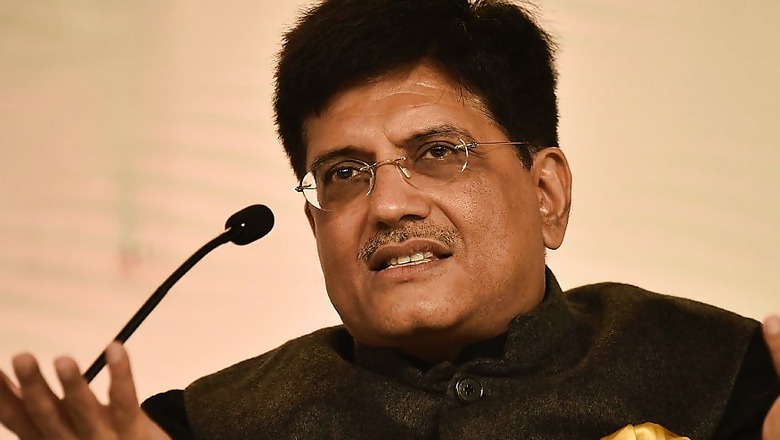
views
New Delhi: The Ministry of Railways, many believe, is a jinxed ministry. The fact that there have been eight ministers in Rail Bhawan over the last eight years is testament to how difficult it is to hold down the job. While some quit in the wake of devastating rail accidents, others were plagued by corruption scandals and a few exited while pursuing greater political goals. But the scale of work in the ministry is enough to overwhelm anybody.
Five months into his tenure as Railway Minister, the challenges for Piyush Goyal are immense. And if sourcees in the ministry are to be believed, the focus of the 2018 Railway Budget will be largely on passenger safety.
The spate of accidents under Goyal's predecessor Suresh Prabhu has brought under question the railway's safety record. While Prabhu had initiated some changes, such as replacing old coaches with newer, safer ones and hiring more trackmen to manually patrol the tracks, a much larger exercise will be needed to restore faith fully. Many maladies, such as trackmen serving as domestic help in the houses of senior Railway officers, still persist.
While Prabhu had ordered the replacement of old ICF coaches with newer LHC ones, experts believe it will take anywhere between 25-40 years for them to be totally replaced. However, Goyal’s ministry in 2017 set an ambitious target to completely switch over to LHB coaches production from 2018-19.
The Ministry has also set other ambitious targets such as elimination of all unmanned level crossings over the next 3-4 years. In the 2017-18 Union Budget, an exclusive fund called "Rashtriya Rail Sanraksha Kosh" (RRSK) was made with a corpus of Rs. 1 lakh crore over a period of 5 years for giving a major boost to safety related works over Indian Railways for improving safety of tracks, rolling stock and proliferation of other safety technologies and training of staff.
But a balance sheet of the Railways from the 2016 budget does not give promising signs. Last month, the ministry informed the Rajya Sabha that Rs. 63,063 crore was allotted to it for passenger safety in 2016-17 Union Budget. However, the actual expenditure ended up being Rs. 55,918 crore. A total of Rs. 7,145 crore meant for passenger safety went unspent.
This has reflected in how the Railways has consistently failed to meet its targets of track renewal for the last two years. In 2014-15, the track renewal target was 2,200 kilometers but the Railways exceeded that and renewed 2,424 kms. In 2015-16, too, the railway exceeded its target of 2,500 kms by renewing 2,794 kms. In 2016-17 and 2017-18, the ministry has fallen behind its targets. In 2016-17, the target for track renewal was 2,668 kms but the railway fell short by 181 kms and renewed only 2,487 kms. In 2017, the shortfall was even bigger. The target the ministry had set for the financial year was an ambitious 3,600 kms of tracks to be renewed. However, the government informed the Rajya Sabha last month that by November, it had only managed to renew 2,007 kms.
The pace of modernization and reforms within railways will be another major challenge. While Prabhu had got the ball rolling, much more work needs to be done. The Bibek Debroy Committee, E Sreedharan Committee, Anil Kakodkar Committee and Sam Pitroda Committee have all suggested sweeping changes in the Indian Railways. For the new minister, the speedy implementation of these reforms will be key.
In the 21st Century, the Railways operate with 20th Century management practices and infrastructure. According to Railway Expert Akhileshwar Sahay, the skill level of over 50% Railway workers is “abysmally poor” and obsolete maintenance practices of the British era still persist.
The organization of the Railway structure itself is becoming a challenge according to Sahay. He added, "At an operational level, the Railway is organized in the most suboptimal manner. A decade back, to improve operational efficiency, Chinese Railway abolished an entire tier in one go. Contrarily, the number of zonal railway headquarters and divisional railway headquarters has grown haphazardly in our country and the sole criteria of creating a new zone and division has been the political expediency and whims of the minister in-charge. Whenever an accident took place, Railway Board honchos surrendered meekly to safeguard their personal interest. And the obvious result is that the Railways, which was once the pride of the nation, today has seen a fall — freight has moved to high-capacity trucks on upgraded highways, and passengers have moved to buses and air. The decline now is both in percentage and absolute terms."



















Comments
0 comment